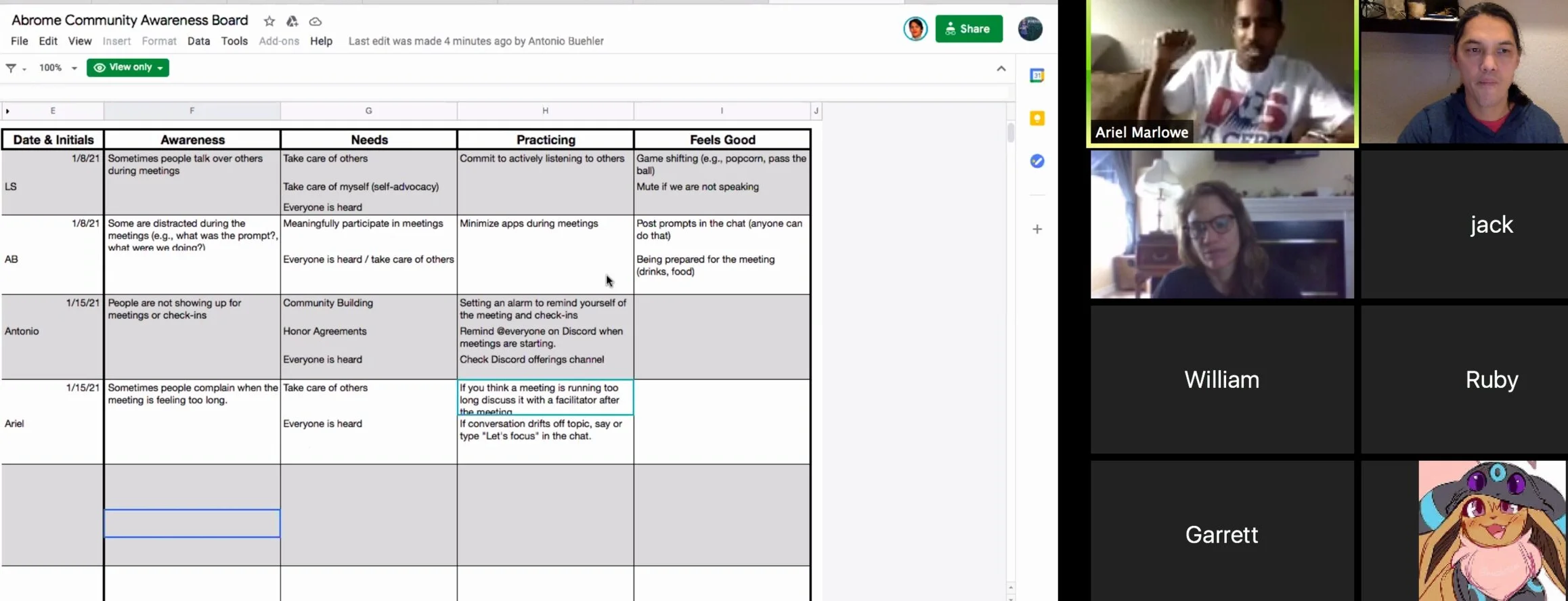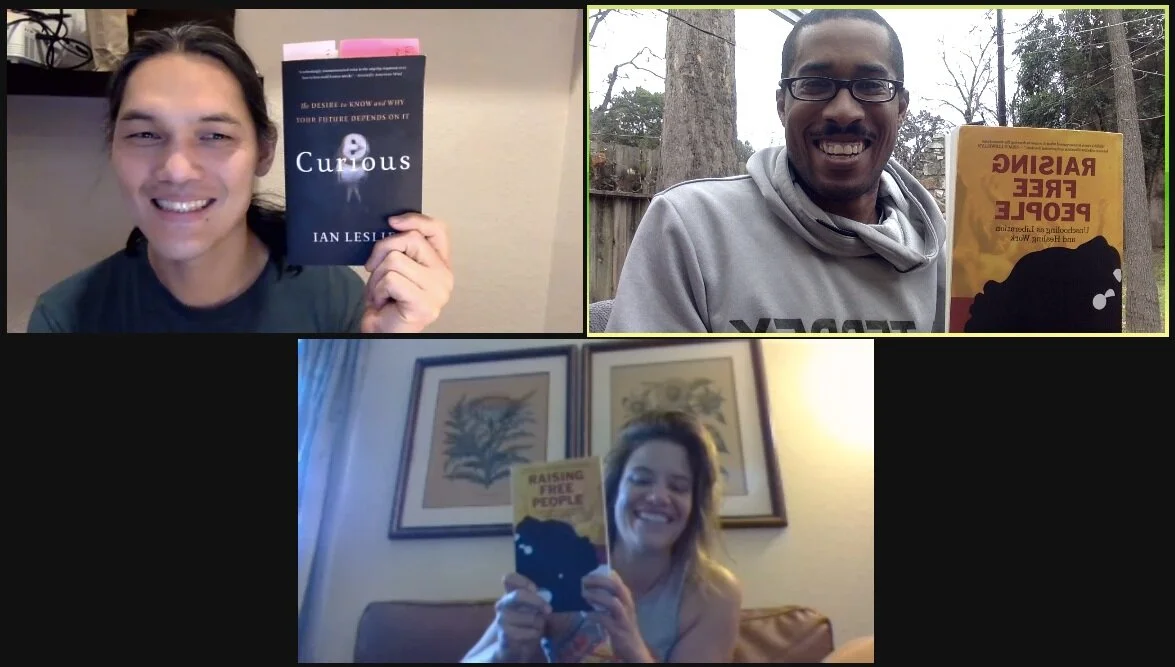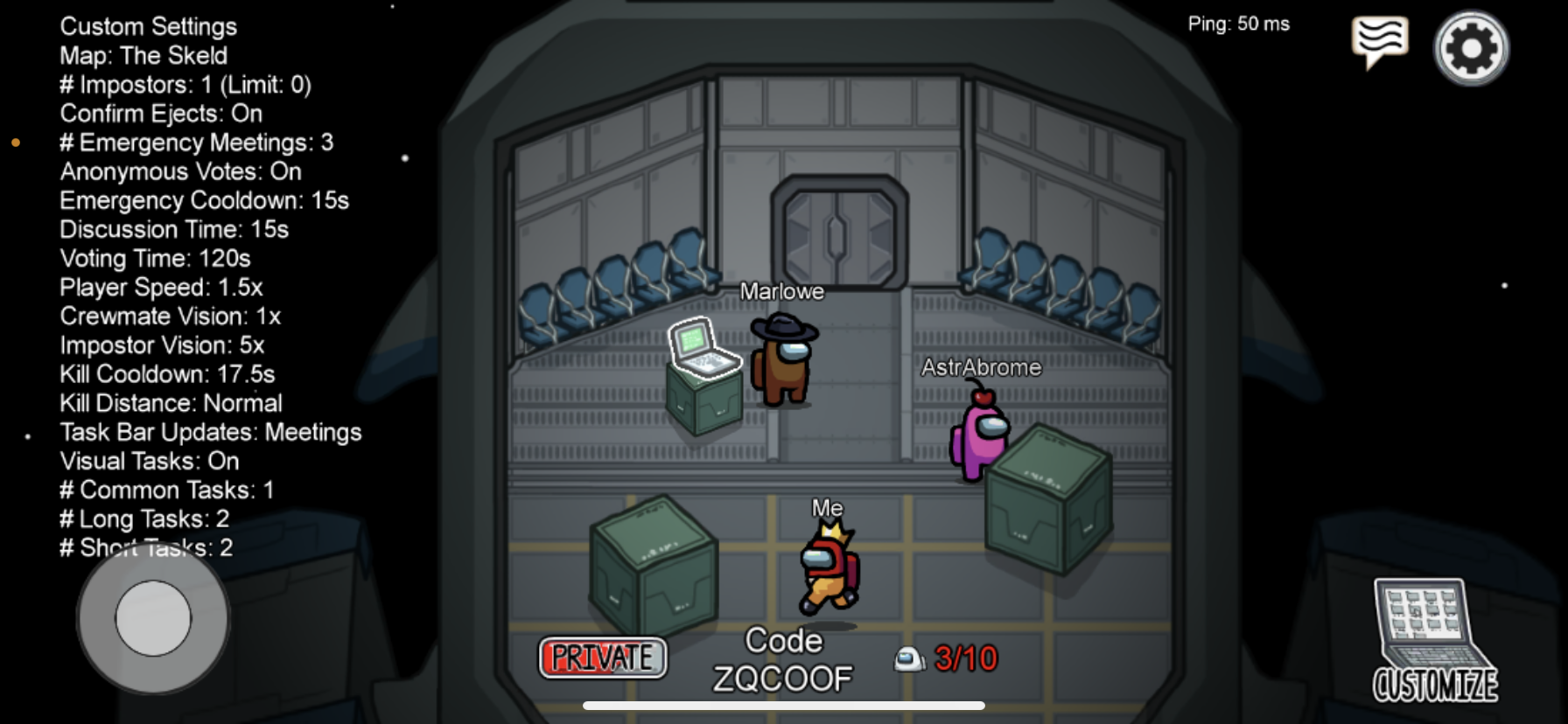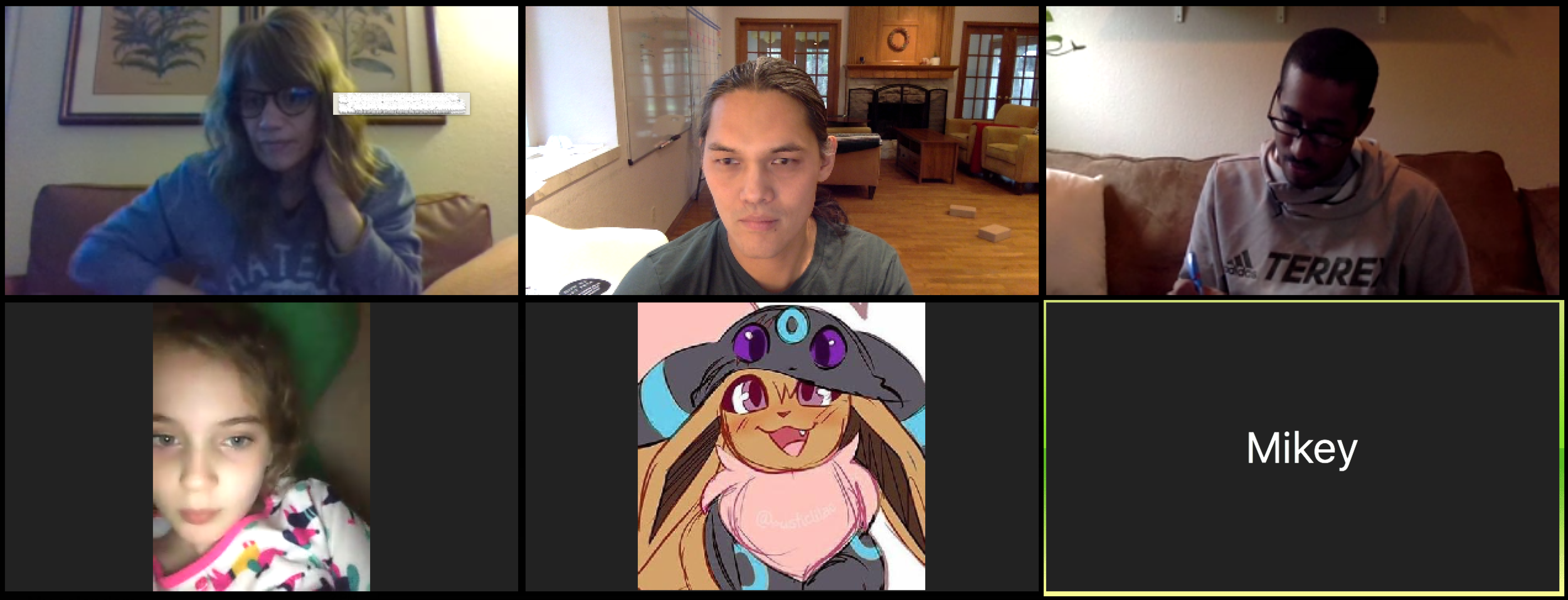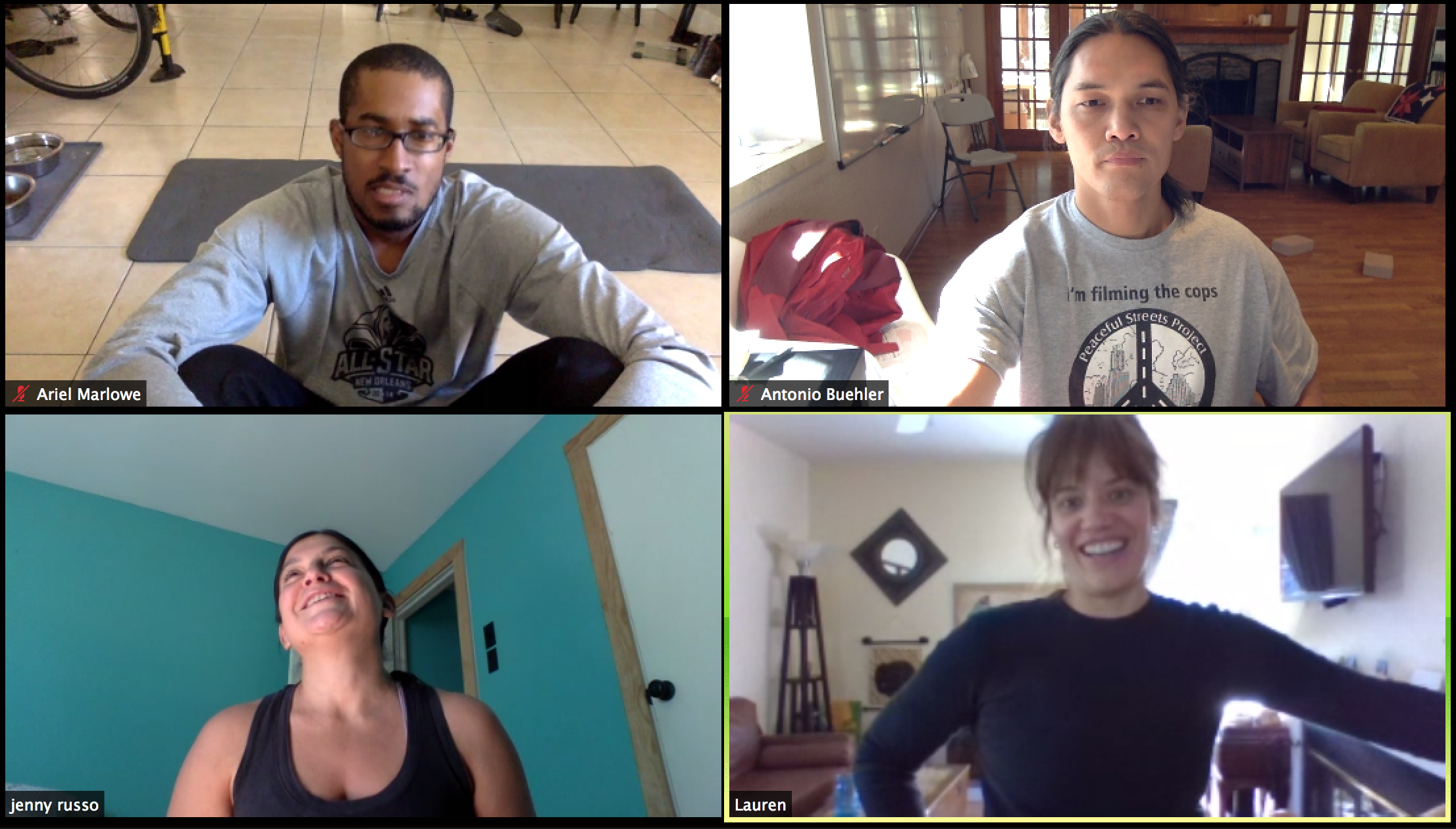Day 76 was the last day of our last full week of cycle five, and it would have been the last in-person day of the cycle had we not been in Covid-19 risk stage level five in Central Texas. The following Monday and Tuesday were scheduled online days, which would allow Learners to have a full nine days of being at home and away from other Learners to observe for symptoms before coming together again. It’s a brilliant practice that allows us to find ways to more safely be together in small groups during a pandemic … if there is not uncontrolled spread of the disease. But unfortunately, too much of Central Texas has given up the fight. So instead of Friday being the last in-person day of the cycle, it is the third to last remote day of the cycle.
We had a decent turnout for the morning meeting. Those who were missing included a Learner who has not been participating in meetings, a Learner who has recently started a job and is therefore unavailable for a lot of meetings, a Learner who often stays up much of the night and has a difficulty making the morning meetings, and a Learner who needs help from his family to log onto the meeting which does not always happen. We recognize that remote is a poor substitute for in-person Emancipated Learning, and instead of demanding attendance we continue to make ourselves available for Learners when they want to connect. No school should be demanding presence during online learning given the stressors of the pandemic.
The meeting started with announcements. Announcements are typically reserved for things that are relevant to the community, such as talk about upcoming offerings, requests for support from the community, or asking for commitments from others. But during the remote phase of the pandacademic year, it has morphed into people sharing whatever they want to share. When the announcements were over Facilitator Ariel shared a comic about how challenging experiences make the pleasurable ones all the better. It was a nice way to start the meeting. He then asked, how do you feel right now? After everyone shared the follow-up prompt asked everyone to identify what is something they can do to make others feel safe. The question was challenging for some, and some were not able to answer or they did not feel comfortable answering. Some repeated a practice that one of the cells implemented earlier this year. Wouldn’t it be great if all spaces did at least what the Learners came up with? Listen to people (actively listening); not using ableist language; not using ableist language, not using hateful words; being non-judgmental, showing compassion, and being present; “I don’t know because it is different for each person”; not using ableist language; give company to others; by being very protective.
Check-in and Change-up
After the morning meeting we moved into the weekly Check-in and Change-up meetings. Learners are expected to participate in the Check-in meeting when we meet in person, but in remote we just highly encourage it. One Learner dropped off early but everyone else stuck around. During the Check-in, Learners and Facilitators have the opportunity to raise awarenesses that they think may be able to be addressed in the Change-up meeting. An awareness is typically an observation of something that is happening in the community that has a negative impact on the culture that the person would like to see changed, although it can also be a suggestion that can improve the community, or it can be an attempt to clarify some of our norms. A young Learner and Facilitator Lauren both raised awarenesses. Facilitator Ariel then adjourned the meeting and immediately moved into the Change-up meeting.
Three left after the Check-in, leaving us with eight people for the Change-up meeting. As we began to discuss the new awarenesses that were raised I suggested that they were both topical to a prior awareness, and that instead of creating new awarenesses we could modify the current one. Everyone agreed. After we finished working out the wording of the awareness and reworking the practices to fully address the two raised awarenesses, we went to work on the other awarenesses that were already on the Community Awareness Board. During the review of the awarenesses one Learner spoke over everyone and aggressively said, “stop making pointless awarenesses.” It was a jarring statement that took the air out of the Zoom room, but Facilitator Ariel responded with patience to try to keep the Learner who stuck around for the Change-up involved in the meeting, to address his concerns, and to also protect the other Learners from feeling unsafe. Facilitator Ariel asked him to clarify his concern. The Learner said that some awarenesses were pointless and were a waste of time. Facilitator Ariel then asked him to please explain what he meant by pointless, and to highlight a pointless awareness. The Learner couldn’t identify one that was currently on the Community Awareness Board but he identified a prior awareness of “keep an eye and an ear out for weird creatures he meant.” I then pointed out that the reason the awareness was added was because a younger Learner came up with the awareness at a prior Check-in and then stuck around for the Change-up when most left, and so the Facilitators had the time to support the Learner through the process of identifying needs and practices relevant to his concern. We then removed the awareness after one week because we felt good about the practices. At that point the Learner acknowledged that adding that to the board was more helpful than not, but that what he really wanted was for the meeting to not last long. Of course the conversation made the meeting longer, but we felt that it was worth the time to work through the issue with him. During the entire process only one other Learner dropped off the call, and we still finished the meeting with plenty of time before the next offering.
Post-7-minute workout high fives
The next offering was our daily 7-minute workout that has been regularly attended by all three Facilitators and one of the guardians. It’s become a fun gathering for us as we all continue to increase our strength and endurance in a pretty low commitment way each day. At the end of each workout we usually ask each other how we are feeling and then do a high five into the camera. But on this day I queued up a music video of Queen’s “We Are the Champions” and each of us either belted out the lyrics or laughed along with the song.
“We Are the Champions”
I then moved into the free write where an adolescent Learner often joins me. But on this day no Learners joined me, but Facilitator Ariel did. He needed to work on some writing for the anti-racist Black collective he is involved with, while I worked on a blog post that I had been trying to finish up all week. It was a good session for each of us, as we both met our goals. I later jumped on a call for an Alliance for Self-Directed Education work group that I’ve been meaning to drop into for quite some time. It was nice to be able to plug into the efforts of people I have largely not worked with before, although I am being mindful not to sign myself up for more responsibilities when I already feel quite overstretched.
Working on some clay
Facilitator Lauren then hosted a clay creations offering that was open to all but particularly targeted toward one Learner who has held a deep interest in clay making since she helped him collect mud, form it, and heat it up in a fire during the first cycle of the pandacademic year. In the time since he has had support from his parents making clay creations at home, but he has not had the opportunity to work with clay at Abrome.
Clay creations
During the offering Facilitator Ariel dropped in to observe what was being created. Facilitator Lauren and the Learner both had a lot of fun with their creations while Facilitator Ariel just enjoyed being able to watch the joy in their faces.
Facilitator Ariel then jumped off for his own online gaming offering that was created as a way to connect with some Learners who are not doing as well with the remote experience this cycle. Unfortunately, none of them joined, but he stuck around and waited to be sure that he was available if they wanted to drop in late.
The Facilitators also had four one-to-one check-ins scheduled with Learners on Friday. The check-ins mean different things to different Learners. In one of my two Discord check-ins I asked the Learner how we could better support him because he had made a statement the day prior that the times that he felt least free were during Abrome meetings. He said that it was just a joke, and I asked him if there was any truth to it. He then said it sorta joke was but also that it was sorta true. I then asked what we could do to make it better for him and he said that he did not want to talk about it. I said that if he really felt unfree during meetings at Abrome I wanted to understand better, and then he threatened to hang up if I wanted to talk about it, and then he hung up. He sent me a message saying that I ruined his mood, and when I asked him how we could have a meaningful discussion about the issue he blocked me. It was an upsetting interaction for both of us. I was disappointed that I was unable to address his needs, and saddened by the manner in which he cut off communication with me. Had we been in person we most likely would have been able to let it sit for a while and then we could have come together later in the day to process what happened, but being remote I felt incapable of following up with him. And I figured that reaching out to his guardian to force the conversation would do more harm than good, so I just sat with my feelings.
Collaborating on naming Minecraft worlds
Fortunately not all one-to-one check-ins were as difficult as that one. Facilitator Ariel had a check-in with a Learner who started off the cycle completely absent from all meetings and offerings, and but more recently has been a regular fixture in our online gatherings as well as on the Discord channel. On this day she spent a half hour with Facilitator Ariel talking about all of the stuffed animals in her room and creating a world in Minecraft.
Afternoon roundup
Still feeling frustrated I moved into the afternoon roundup that I was responsible for that day. My mood immediately brightened when a Learner brought her young brother to the meeting. We all made space for him to say hi and share his thoughts, and then we formally started the meeting. With the Learner I had a difficult one-to-one check-in with missing the meeting, I decided to change up my prompt to help everyone consider what they can do in situations in which they may have hurt someone in some way. It was nice to see that many of the answers went beyond just an apology: apologize and commit to fix it; ask if i can make amends and actively work to not do it again; have a conversation about what happened and include them in the conversation if it was a response to them; apologize and make sure they know I know what I did wrong, explain how i should have done things differently, and give them space if needed; say sorry and try to make things better. Multiple Learners did not know how to respond to the prompt, but I think they benefited from hearing others share their ideas. I then adjourned the final afternoon meeting of the week.
Because it was Friday we then had a gratitude offering where anyone could stick around to share gratitudes. This is a fabulous exercise when it is not forced on young people. All the Facilitators and two Learners stuck around for it. One Learner who did not stick around for the gratitude offering primed it in the afternoon roundup that she was grateful for the Abrome community. In the gratitude meeting we shared multiple gratitudes. One Learner specifically expressed gratitude for Facilitator Lauren repeatedly reaching out to her with invitations to upcoming offerings. And Facilitator Ariel shared his gratitude for Abrome because “I get paid to wake up and live.”


